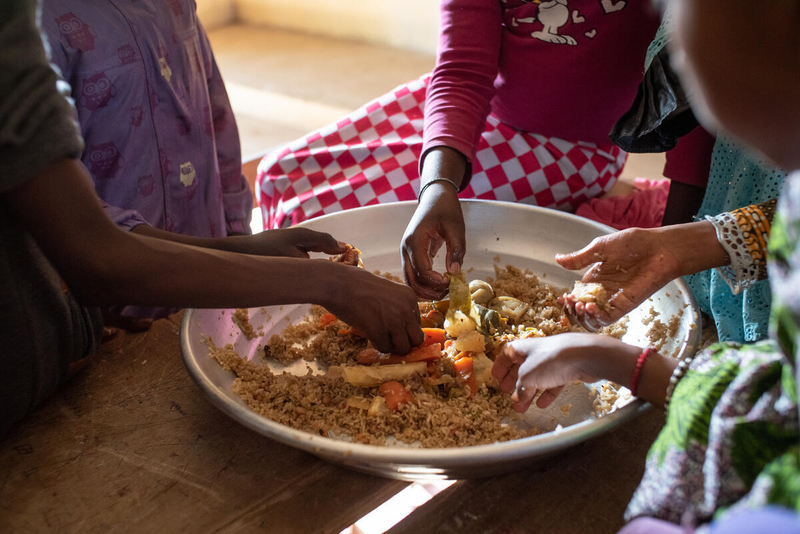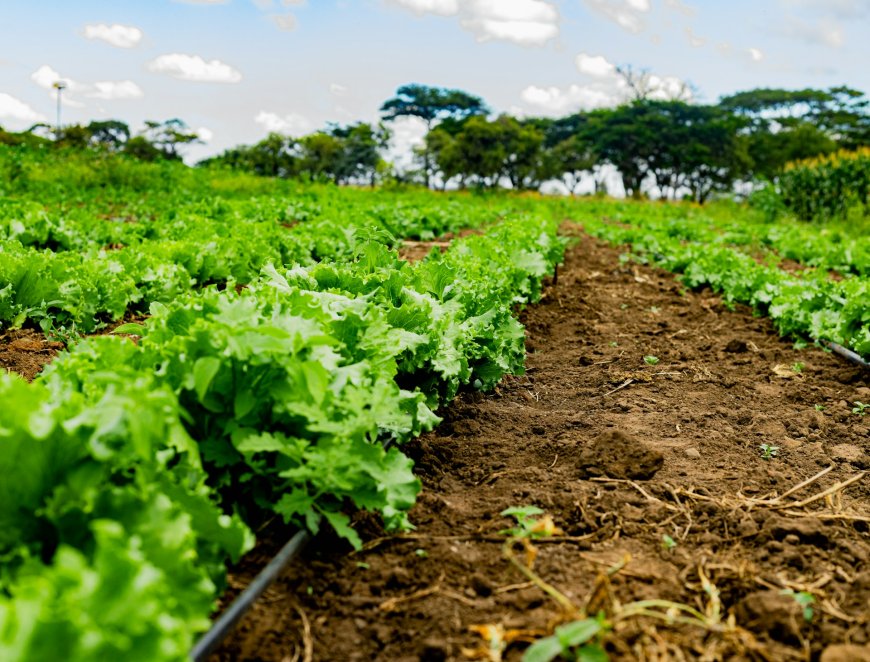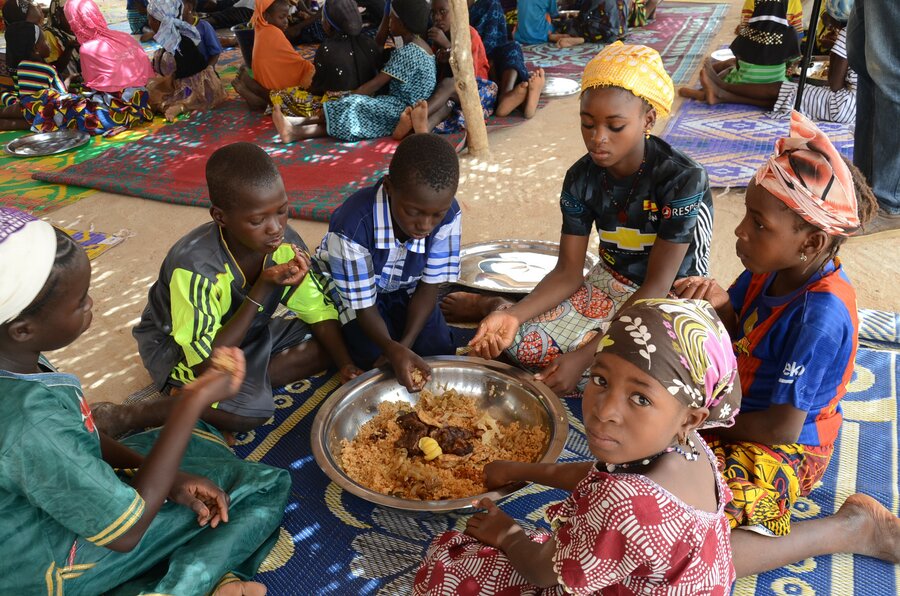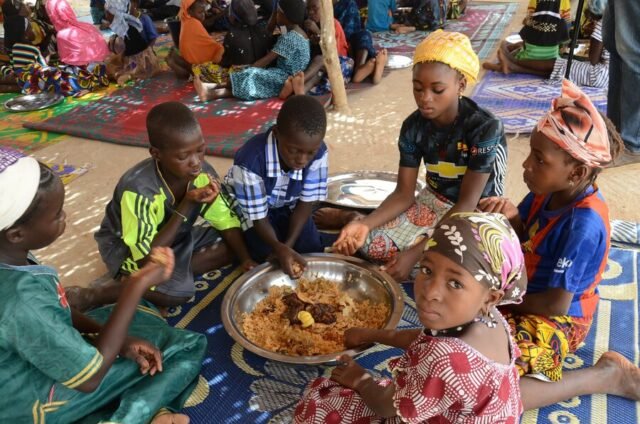The world today stands at a crossroads, where the twin pillars of food security and education underpin not just national growth, but global prosperity. It’s no mere catchphrase—ensuring that every child receives both a balanced meal and a quality education does far more than nurture minds and bodies. It cultivates hope, resilience, and economic stability.
When families have access to reliable, nutritious food, the ripple effects are immediate. Children grow up healthy and are in school, not at home weakened by hunger. Parents, better nourished, are more productive. Communities, in turn, are more stable and less vulnerable to unrest or migration pressures.
Meanwhile, education equips young people with the knowledge, skills, and confidence to shape their futures. It breaks cycles of poverty, empowers women, improves maternal and child health, and fosters civic participation—building stronger societies.
In sum: food security without education is like a body with no brain; education without nutrition is talent shackled by hunger. Together, these two are the lifeblood of sustainable prosperity.

The Nigerian Landscape: Promise, Pitfalls and Progress
In Nigeria, the challenge is particularly urgent.
A. Hunger on the Rise
Despite her vast arable land, Nigeria remains a food-insecure nation. As of mid-2025, over 20 million Nigerians face food insecurity—a stark reminder that potential doesn’t always translate into provision. Food inflation hit a 25-year high—40.7%, with overall inflation rising to 34.2%, pushing millions further into malnutrition and deprivation.
B. Education’s Untapped Role in Agriculture
Until recently, agricultural science was a compulsory subject in secondary schools, equipping youths with vital farming knowledge. Now, it’s optional—and enrolment in that subject has plummeted by 40% between 2015 and 2020. This has led to a stark demographic shift: Nigerian farmers’ average age now exceeds 60 years, with too few young hands ready to till the soil.
Meanwhile, agricultural universities and research institutes—like the Federal Universities of Agriculture in Abeokuta and Makurdi—have long held promise. They train graduates in crop science, sustainable practices, and livestock management. Yet, experts say their impact remains muted due to underfunding and weak partnerships with farmers.
C. Renewed Hope with Integration and Innovation
There is positive change afoot. The ‘Grow What You Eat’ initiative seeks to transform school gardens into dynamic classrooms, where students not only learn agricultural science but also entrepreneurship and environmental stewardship. Targeting junior secondary students nationwide, the programme symbolises a holistic approach to skills acquisition and food security.
Moreover, the Federal Government’s bold budgetary boost in 2025 has sent ripples of excitement. With allocations for agriculture more than doubling compared to 2024, universities and polytechnics have been tapped to develop mechanised farms and livestock units—bringing much-needed hands-on training to campus and rural communities alike.
D. From School Feeding to System-wide Impact
Another shining example is the Home-Grown School Feeding Program (HGSF). By providing nutritious meals to primary school pupils—over 4 million children across 26 states—the programme not only improves school attendance and learning but also boosts demand for local farmers’ produce, strengthening rural economies.

How Food and Learning Interact to Transform Lives
Let me tell you—which came first: the chicken or the egg? In this case, hunger or learning? The truth is, they feed each other, in more ways than one.
A. Nourishment Drives Learning
A child who skips breakfast, or whose body is depleted of essential nutrients, cannot focus. Studies in Nigeria show that poor learners—students with cognitive promise—often fall behind because hunger diminishes attention, health, and opportunity.
B. Education Empowers Farmers and Farmers’ Systems
Education—both formal and informal—injects modern farming know-how into rural communities. Extension services, workshops, vocational schools, and universities equip farmers with techniques like crop rotation, irrigation, pest control, and soil conservation. These interventions can double yields, improve nutrition, and preserve the environment
Innovative teaching methods—ranging from experiential learning and project-based instruction to flipped-classrooms enhanced by digital tools—have shown promise in preparing students for the realities of modern agriculture.
C. Youth Inclusion is the Game-changer
Nigeria’s youthful population is an immense demographic dividend—if the pipeline of opportunity is open. Education programmes that make agriculture appealing—through entrepreneurship, technology, and agribusiness training—anchor youth in rural economies rather than pushing them into over-urbanisation or aimlessness.
D. Aligning Policy, Practice and Power
Last—and not least—education about food systems must reach the halls of power. Policymakers and citizens alike must grasp the interplay between land use, food subsidies, trade, and rural development. Civic awareness can drive reform, accountability, and long-term resilience.
The Road Ahead: Recommendations and Reflections
So what must we, as a nation and as global citizens, do to seize the promise of food security and education?
1. Reinstate agricultural science as a mandatory subject
Transform it into a curriculum backed by resources, training, and motivation for teachers. Provoke student interest in farming as a profession—vital for succession planning in rural areas.
2. Scale up practical, school-based farming initiatives
Expand programmes like ‘Grow What You Eat’ and link them with digital learning tools. Encourage state governments to replicate the Abuja-led workshop model across schools.
3. Support tertiary institutions to anchor research in reality
Fund universities to innovate in food preservation, seed improvement, and climate-resilient techniques—and transfer those findings to nearby communities.
4. Formalise and expand school-feeding programmes
Strengthen HGSF by increasing coverage, improving nutritional content, and ensuring local sourcing remains central to economic impact.
5. Empower youth through agribusiness training
Make agriculture desirable again by providing access to land, finance, mentorship, and technology. Showcase success stories—from farmers to ag-tech ventures—as inspiration.
6. Elevate food-system literacy in civic discourse
Include nutrition, land rights, and food security in public education drives, so that both leaders and citizens can advocate for enabling policies.

Conclusion
It is not hyperbole to say that if you want to feed a nation’s ambitions, you must feed its children—and teach them to feed themselves. The synergy between food security and education isn’t just a path to national success; it is critical to world prosperity. In Nigeria, we have the land, the minds, the youth, and the will. By intertwining nourishment with learning, we can unlock resilience, innovation, and a future where no child is too hungry to grow into tomorrow.
Join Our Social Media Channels:
WhatsApp: NaijaEyes
Facebook: NaijaEyes
Twitter: NaijaEyes
Instagram: NaijaEyes
TikTok: NaijaEyes
READ THE LATEST EDUCATION NEWS





